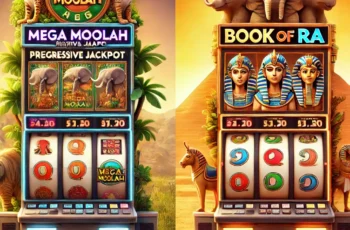Alright, let’s cut the crap and get real about poker and 5-card draw. You think you’re about to hit the jackpot, but the truth is, these games can suck you dry faster than you can say “all in.” This isn’t just another comparison; it’s a raw look at why both of these games are riskier than a midnight stroll through a bad neighborhood. We’re diving deep into the trenches of these card games, exposing the pitfalls and the downright ugly truths that the casinos won’t tell you. Buckle up, because this ride is going to be bumpy as hell.
The Brutal Odds of Winning
Poker’s Ruthless Edge
Let’s start with the glaringly obvious – the odds. Poker might seem like a thrilling way to spend your evening, but those odds are stacked against you. In poker, the house always has the edge. Sure, there’s skill involved, but let’s not kid ourselves. One bad hand, and you’re screwed.

5-Card Draw: A Deceptively Simple Trap
With a 5-card draw, it’s even worse. The simplicity of the game is deceptive; the fewer cards, the fewer chances you have to build a strong hand. The odds are brutal, and unless you’re a pro, you’re more likely to walk away broke.

Navigating the intricacies of poker requires more than just luck; it demands strategy and a keen understanding of the game’s traps. Even experienced players can fall into these pitfalls, making it crucial to recognize and avoid them. For an insightful look into some of the most cunning traps that can catch even seasoned players off guard, check out the following video: “TOP 5 Most BRUTAL Poker TRAPS ♠️ PokerStars.”
Financial Ruin on the Horizon
Poker: The Fast Track to Bankruptcy
Let’s talk about money. Poker can be a fast track to financial ruin. The allure of a big win can lead to reckless betting, and when the losses start piling up, it’s a slippery slope. Many players fall into the trap of trying to win back their money, leading to even bigger losses.

5-Card Draw: Rapid Fire Financial Disaster
In a 5-card draw, the quick rounds mean you can lose a lot of money in a short amount of time. The stakes are high, and the risks are higher. It’s easy to get caught in a vicious cycle that can devastate your finances.

The Allure of Addiction
Poker’s Grasp: Addictive and Relentless
Gambling addiction is real, and poker is a major culprit. The thrill of the game, the rush of adrenaline, and the hope of hitting it big can be addictive. For some, it’s not about the money but the high that comes with the game.

5-Card Draw’s Addictive Appeal
This addiction can lead to a downward spiral, affecting not just your finances but your relationships and mental health. The constant need to play and win can consume your life, leaving you in a never-ending cycle of addiction.
Risky Moves and Pitfalls in Different Poker Variants
Texas Hold’em
Overvaluing Hands Pre-Flop
- Problem: Playing too many hands and overestimating the strength of hands like suited connectors and low pairs.
- Example: Consistently calling raises with hands like 7-8 suited, hoping to hit a lucky flop.
Ignoring Position
- Problem: Playing aggressively from early positions with marginal hands.
- Example: Raising with K-J offsuit from under the gun, often leading to being outplayed by later position players.
Failing to Adapt to Opponents
- Problem: Not adjusting strategy based on the playing style of opponents.
- Example: Continuously bluffing against a calling station who rarely folds.
Chasing Draws Without Proper Pot Odds
- Problem: Calling large bets with low probability draws.
- Example: Calling a big bet on the turn with only a gutshot straight draw, leading to frequent losses.
Omaha
Playing Weak Starting Hands
- Problem: Not recognizing the importance of starting hand strength.
- Example: Entering pots with hands like Q-8-5-2 offsuit, which have little potential for strong post-flop hands.
Overplaying One Pair Hands
- Problem: Betting aggressively with one pair, which is usually not strong in Omaha.
- Example: Betting pot with top pair on the flop, often getting outdrawn by multi-way opponents with draws.
Neglecting Draws
- Problem: Not taking into account the drawing potential of hands.
- Example: Folding a hand with a strong wrap draw on the flop, which has high equity.
Poor Pot Control
- Problem: Building large pots with marginal hands.
- Example: Raising pot with middle set on a highly coordinated board, risking a large loss to a stronger hand or draw.
Seven-Card Stud
Overplaying Early Streets
- Problem: Betting and raising too aggressively in the early streets without a strong hand.
- Example: Raising with a weak pair of sixes on third street, only to lose to higher pairs or better hands on later streets.
Failing to Observe Opponents’ Upcards
- Problem: Not paying attention to the visible cards of opponents.
- Example: Continuously drawing to a flush when multiple cards of that suit are already visible in opponents’ hands.
Inconsistent Betting Patterns
- Problem: Not maintaining consistent betting patterns, making it easier for opponents to read your hand strength.
- Example: Suddenly getting aggressive with a weak hand after previously playing passively.
Video Poker
Not Understanding Pay Tables
- Problem: Playing without knowing the payout structure, leading to poor strategic decisions.
- Example: Choosing a video poker machine with a lower payout for full houses and flushes, reducing overall returns.
Improper Strategy for Different Variants
- Problem: Using the same strategy for different variants of video poker.
- Example: Playing Jacks or Better strategy on a Deuces Wild machine, which requires a completely different approach.
Ignoring Optimal Hold/Discard Strategy
- Problem: Not following the mathematically optimal strategy for which cards to hold and discard.
- Example: Holding a high pair instead of a four-card flush draw, missing out on better potential returns.
Playing Without Bonuses or Promotions
- Problem: Not taking advantage of available casino bonuses or promotions.
- Example: Missing out on cashback or loyalty points that could offset losses.
Costly Mistakes in 5-Card Draw Poker
Overplaying Weak Hands
Playing Too Many Hands
One of the biggest mistakes is playing too many weak hands. In 5-Card Draw, your starting hand is crucial, and playing hands with low pairs or unconnected cards can lead to significant losses.
Holding on to Small Pairs
Pairs lower than Jacks are often trouble hands and should typically be folded unless you have a very strong read on your opponents. Playing these hands aggressively can result in frequent losses.
Poor Draw Decisions
Drawing Too Many Cards
Drawing four or five cards is almost always a bad strategy, as it signals a very weak hand and provides minimal improvement chances. This move is often made by inexperienced players and should be avoided.
Ignoring Optimal Draw Strategies
Not adhering to optimal drawing strategies, such as drawing three cards to improve a single pair or two cards to improve trips, can severely impact your chances of forming a strong hand.
Ineffective Bluffing
Unconvincing Bluffs
Bluffing in 5-Card Draw requires a believable narrative. Bluffing without understanding opponents’ tendencies or without setting up a plausible hand story often leads to getting caught. Pay attention to the number of cards opponents draw to gauge their hand strength before attempting a bluff.
Over-Bluffing
Bluffing too frequently or in the wrong situations can lead to opponents catching on and calling you down with stronger hands. It’s crucial to mix up your play and not rely heavily on bluffs.
Poor Position Play
Ignoring Table Position
Playing without regard for table position is a common mistake. Your position relative to the dealer can significantly influence your strategy, with early positions requiring stronger hands to play compared to later positions where you can play a wider range of hands.
Failing to Adapt to Opponents
Not reading opponents and failing to adapt to their betting patterns and tendencies can lead to poor decisions. Watching how many cards they draw and their betting behavior provides vital clues to their hand strength.
Casinos and Platforms to Avoid
Online Casinos
Unlicensed and Unregulated Casinos
- Problem: Lack of oversight can lead to unfair games and difficulties in withdrawing funds.
- Example: Websites operating without licenses from reputable authorities such as the Malta Gaming Authority or UK Gambling Commission.
Casinos with a History of Fraud
- Problem: Previous incidents of rigged games or refusal to pay out winnings.
- Example: Online casinos blacklisted by player review sites for unethical practices.
Poor Security Measures
- Problem: Inadequate security leading to data breaches and identity theft.
- Example: Casinos without SSL encryption or those that have been previously hacked.
Physical Casinos
Casinos with Poor Security
Some physical casinos may have inadequate security measures, making them risky for players. Ensure that the casino you choose is reputable and has a strong track record for player safety and fair play.
Conclusion
So, what’s the verdict? Poker and 5-Card Draw are far more than just casual games; they’re potential minefields that can lead to financial devastation, psychological turmoil, and a relentless cycle of addiction. The odds are stacked against you, the mental stress is unrelenting, and the financial dangers are substantial. If you’re considering diving into these games, think twice. The fleeting thrill is not worth the long-term consequences. Be cautious, and always remember, in the end, the house always wins.
For more in-depth articles and expert advice on avoiding the pitfalls of gambling, check out our website. Stay informed and protect yourself from the hidden dangers of the casino world.

OnlineGameReview.ca, your premier destination for honest and comprehensive game reviews in Canada. Our mission is to provide unbiased and thorough evaluations of all types of games, including casino, slot, PS5, and PC games. We pride ourselves on highlighting both the positive and negative aspects of each game, ensuring our readers make informed decisions. At OnlineGameReview.ca, we do not accept payments for reviews, maintaining our commitment to transparency and trustworthiness. Join us as we explore the gaming world and keep you updated on the latest trends and game quality.


